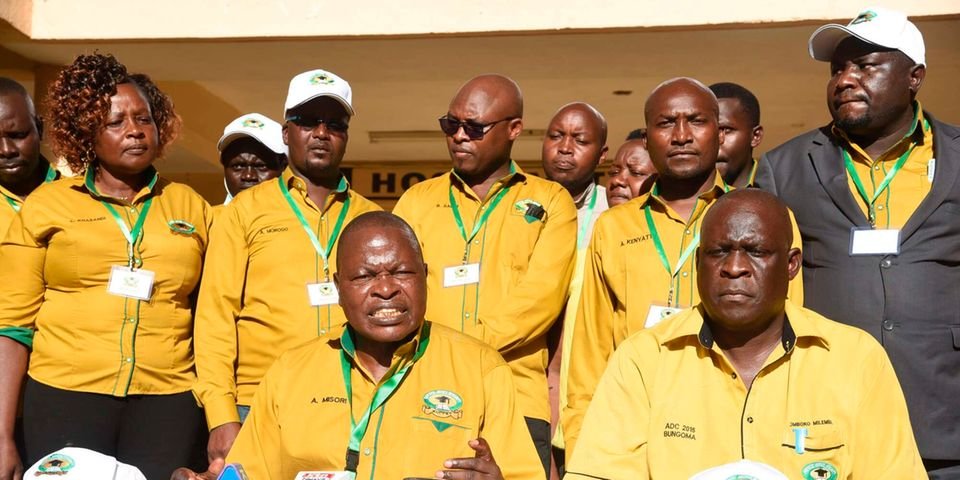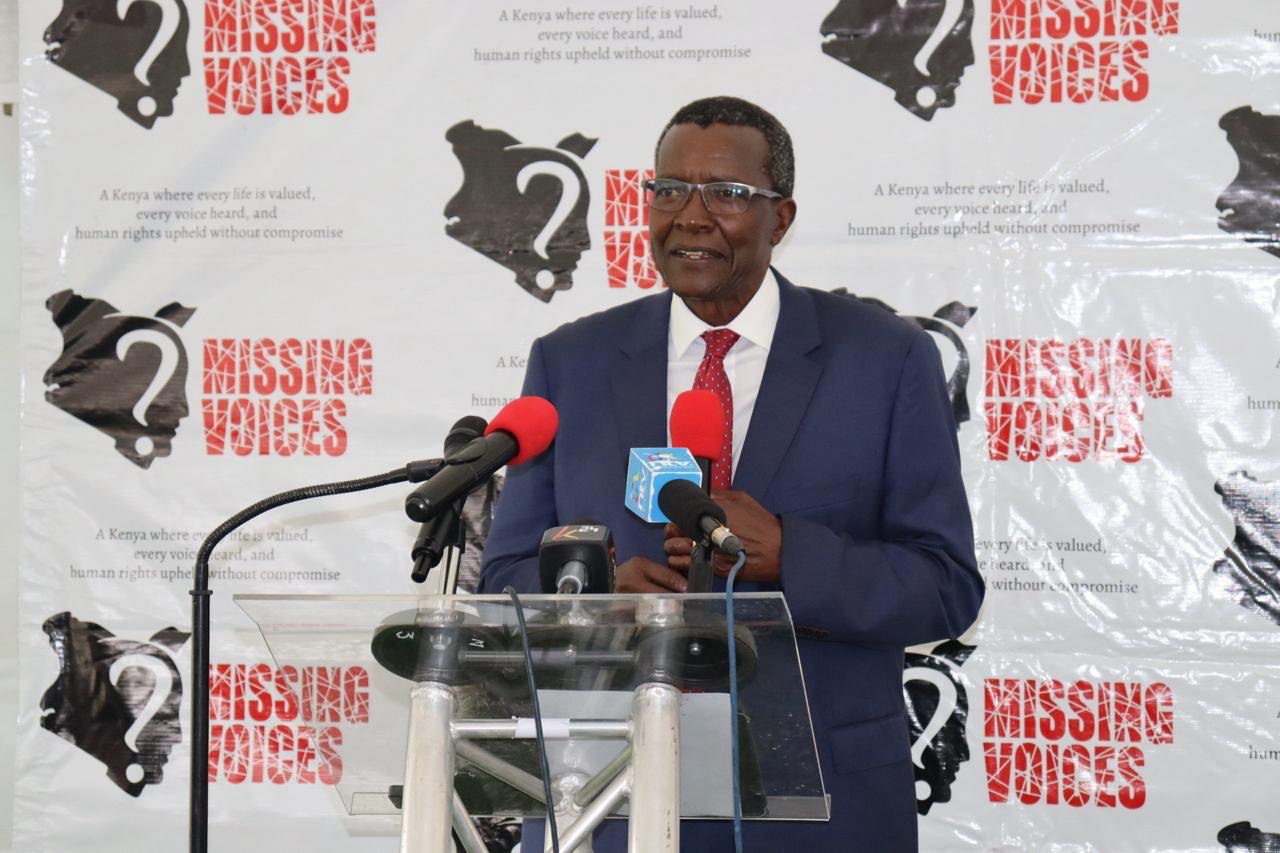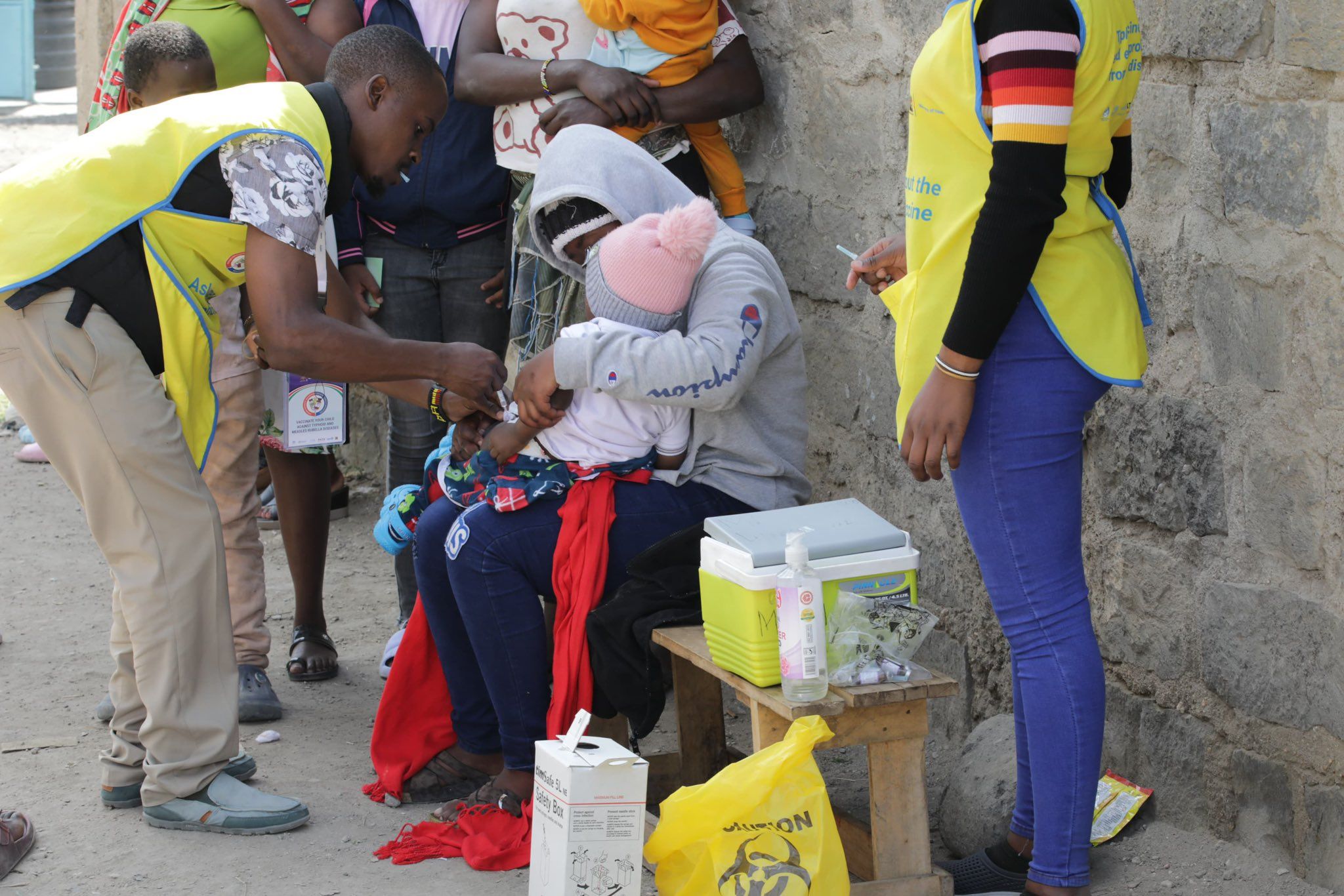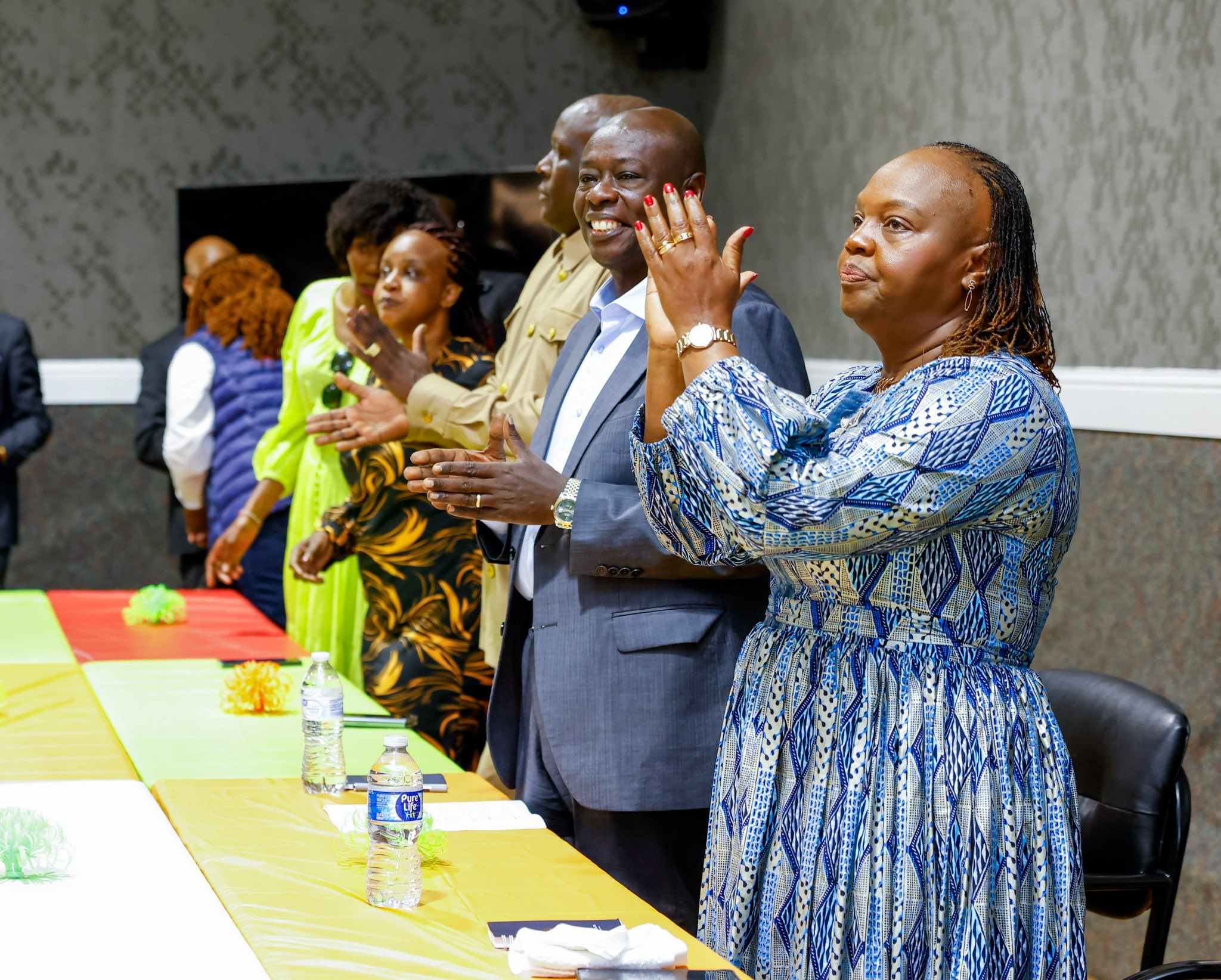Pressure mounts on state as civil society group calls for disbandment of varsity funding team
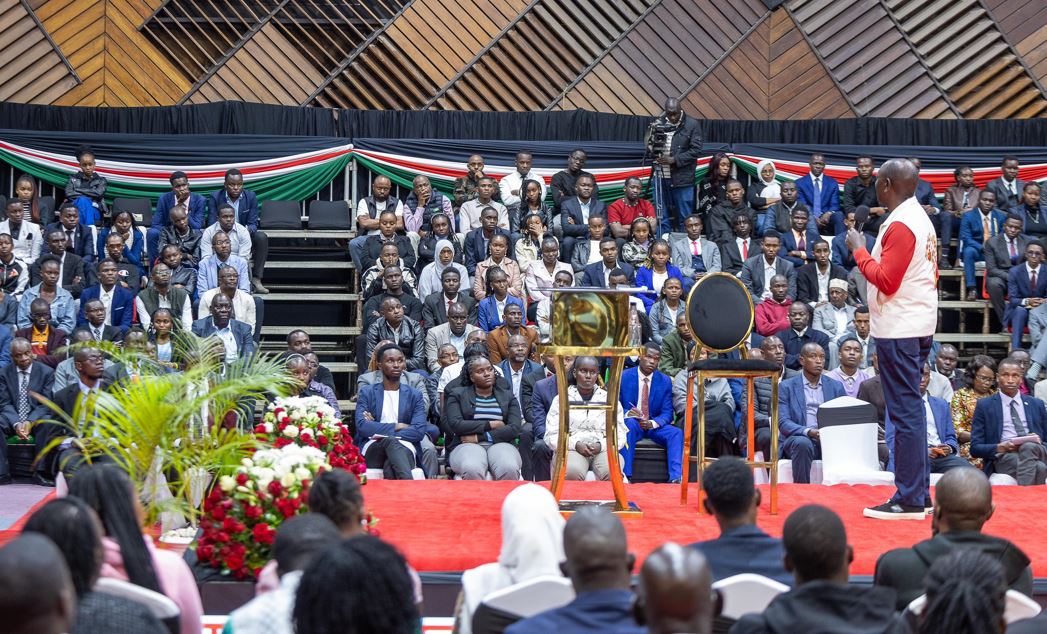
Civil society group points out that previous administrations have formed similar committees, but no meaningful changes resulted from them.
The Elimu Bora Working Group has called for the immediate disbandment of the recently established 129-member committee tasked with reviewing the new university funding model.
While addressing the media on Sunday, the group’s Strategy Advisor Boaz Waruku said the committee should be de-gazetted and the model be returned to the previous funding system, which they argue better served students.
More To Read
- Funding delay forces 2,105 students out of school, over 7,000 suspend studies
- Kenya's public universities 'staring at collapse' without urgent reforms, PS warns
- President Ruto vows to go after schools defying fee payment on eCitizen
- HELB resumes disbursements to KMTC students after Treasury releases Sh500 million
- Accountants, doctors, lawyers and engineers biggest defaulters of HELB loans – CEO Geoffrey Monari
- MPs demand Sh5.9 billion budget reallocation for national exams amid Treasury cuts
Waruku noted that the current committee, appointed by President William Ruto, is not in a genuine effort to address the pressing issues within the education sector. He pointed out that previous administrations have formed similar committees, but no meaningful changes resulted from them.
“The Elimu Bora Working Group opposes this appointment as the current regime is attempting to buy time, weaken the opposition and avoid delivering meaningful education reforms. Previous regimes have employed similar tactics by forming commissions of inquiry to calm public dissent. However, despite the solid recommendations from some of these commissions, no significant outcomes were realized, as the regimes failed to implement them,” the group said.
“President Ruto should de-gazette the 129-member committee and allow the old university funding model to take effect.”
Decline in university applications
The group emphasised the negative impact of the new funding model, citing significant declines in university applications.
“In 2023, nearly 600,000 eligible students did not proceed with university placement. Over 23,000 of those qualified but chose not to apply because the costs became prohibitive,” Waruku said.
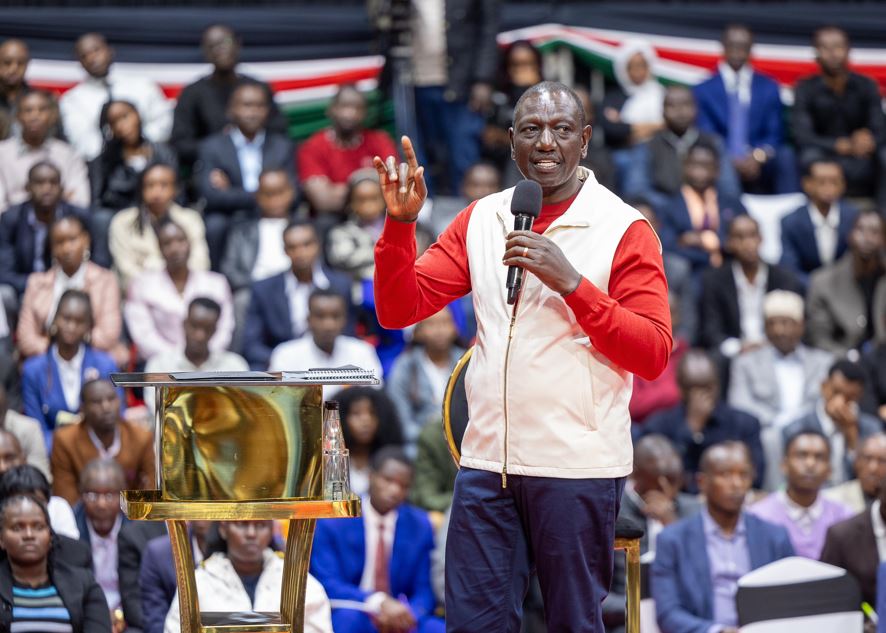 President William Ruto during a town hall meeting on the new university funding model at KICC, Nairobi on August 25, 2024. (Photo: PCS)
President William Ruto during a town hall meeting on the new university funding model at KICC, Nairobi on August 25, 2024. (Photo: PCS)
The group further noted that 136,592 students eligible for diplomas and 249,149 qualifying for certificates are unable to pursue further education due to the wrong funding bands they were placed in.
“These figures evidence the widespread uncertainty and doubt caused by the new funding system. We don't need a committee to halt this model. The Ministry of Education can end this crisis with a simple stroke of the pen. We don't need a committee to confirm that the new university funding model is terrible and hurts our children. We have seen its devastating effects right before our eyes,” the group said.
The group has group has urged the Ministry of Education to take swift action.
“The Ministry of Education should revert to the old university funding model, allowing hundreds of thousands of students locked out of education to resume their studies. Our students should not be subjected to experimental policies that jeopardize their education,” Waruku said.
The newly formed committee has faced significant opposition, including from the University of Nairobi Student Association (UNSA), which issued a 14-day strike notice in response to the government's actions.
UNSA President Rocha Madzao strongly criticised the proposed changes, asserting that they do not meet the needs of students or align with the nation’s educational goals.
He raised concerns about the establishment of four committees tasked with addressing issues related to the loan scheme, highlighting that many students, particularly those from marginalised backgrounds, such as boda boda riders and market vendors, remain uncertain about their futures.
The association called for the immediate disbandment of the newly formed committees, particularly Bands 4 and 5, which were created to oversee loan disbursements.
They argued that the Higher Education Loans Board (HELB) should manage educational loans without the added bureaucratic layers that could hinder the process.
“We don’t see the point of a committee to review loans when we already have HELB. We will not pay for loans while the government takes on more debt for projects that don’t benefit the common mwananchi,” Madzao said.
Top Stories Today








